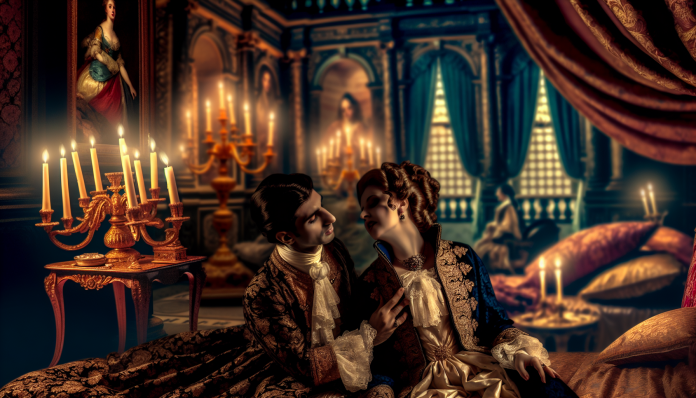Prince Albert’s Erotic Letters and Queen Victoria’s Hidden Desires
In the realm of British royalty, few stories are as intriguing and laden with unexpressed desires as that of Queen Victoria and her beloved husband, Prince Albert. While most know them as the paragons of Victorian morality, their intimate correspondence reveals a side of their relationship marked not just by love but also by unabashed eroticism—indeed, a scandal that lays bare the hidden passions of a queen who was, in many ways, a woman ahead of her time.
Historical Context: The Era of Restrained Desires
The Victorian era (1837-1901) is often characterized by strict societal norms regarding sexuality. Public discourse around sex was typically stifled by an emphasis on propriety and morality. While the Queen was an emblem of these societal values, the private life of the royal couple offered a contrasting narrative, demonstrating that even icons of virtue could wrestle with human desires.
The cultural backdrop of the time was paradoxical; while the middle and upper classes engaged in repressive sexual mores, clandestine sexual behaviors, and literature, including romantic novels and erotic poetry, flourished among the masses. The age of prudishness hid an undercurrent of erotic exploration, mirroring the duality of Queen Victoria’s public persona as the embodiment of modesty and her private letters filled with vivid expressions of passion.
The Scandal: Explicit Letters Surface
The Prince Albert’s erotic letters, lovingly penned for Queen Victoria, were not merely love notes; they were charged with physical longing and intimate desires. Many of these letters, packed with suggestive metaphors and open acknowledgments of lust, detail a robust sexual relationship seldom acknowledged in historical discourse. They touch on themes of personal gratification and shared fantasies—revealing that, contrary to public perception, the couple maintained a vibrant and physical bond.
Key excerpts from these letters provide a glimpse into their passionate exchanges. For instance, in one particularly fervent letter, the Prince wrote of his longing for the Queen in sensual terms, expressing a desire that would shock the conservative Victorian audience: “I long for your arms, your presence, to envelop me in the essence of our love.”
These letters were largely kept private until their publication in the early 20th century, creating a scandal that shifted how society viewed the royal couple. Echoes of the letters sparked discussions not just among the aristocracy but also among the general public, who were both titillated and scandalized by the notion that their Queen had such unabashed passions.
Moral and Cultural Analysis: A Society Divided
The reaction to Albert’s letters was mixed. Many in the upper echelons of society viewed the revelations as indecent, a violation of the sanctity expected from reigning monarchs. The British tabloids, often hungry for royal gossip, reveled in the details, effectively scandalizing a public that idolized Victoria and Albert for their ostensible decency. The repercussions were less about legal consequences for the royals and more about a perceived tarnishing of their immaculate reputations.
Fast forward to today, and such a scandal would likely be met with a different lens. In an era where celebrity culture regularly flaunts intimate details of personal lives—and where bodies and desires are often celebrated rather than shamed—Queen Victoria’s erotic letters would potentially be seen as an authentic expression of love rather than a scandal. Moreover, the dialogue surrounding sexuality is increasingly open, emphasizing individual agency and personal fulfillment, a stark contrast to the mores of the time.
- Public Sentiment Then: Outrage mixed with curiosity, leading to moral debates.
- Public Sentiment Now: Interest in the authenticity of royal intimacy, celebration of love’s complexities.
The letters serve not only as a glimpse into the romantic exploits of a royal couple but also as a reflection of the cultural climate in which they lived—a testament to the enduring complexity of human desire, even behind the gilded gates of royalty.

